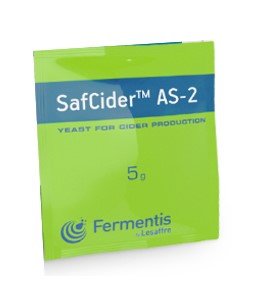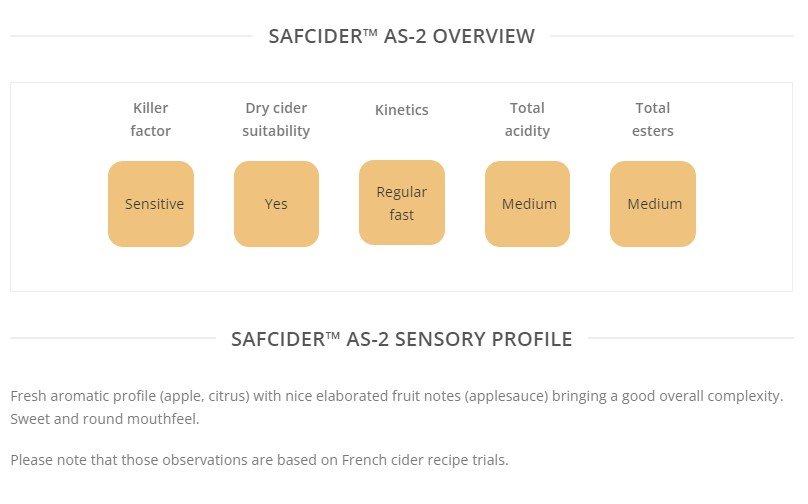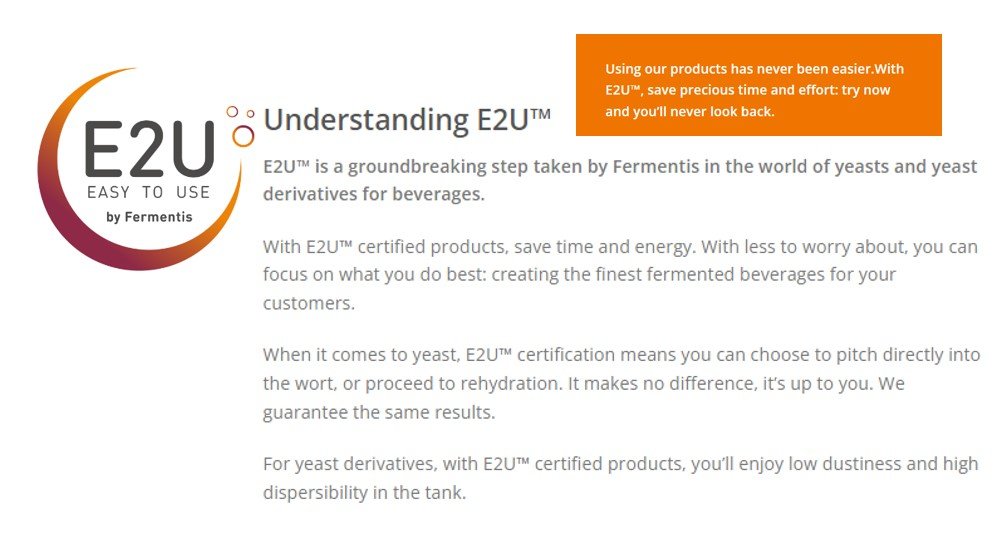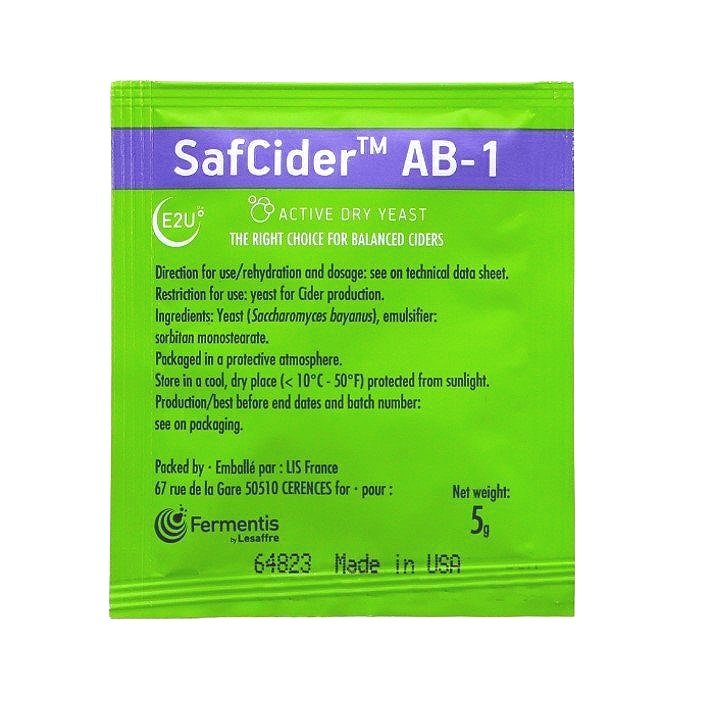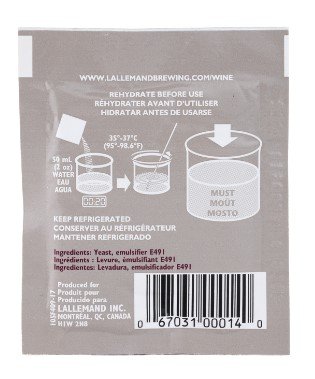Fermentis SafCider™ AS-2 Active Dry Cider Yeast
The best cider yeast for a fresh aromatic profile (apple, citrus) with nice, elaborated fruit notes (applesauce) bringing a good overall complexity.
DOSAGE
– 10 to 20 g/hl for first fermentation
USAGE
For sweet and dry ciders, even under difficult fermentation conditions. Sweet and round mouthfeel.
REHYDRATION PROCEDURE
Direct inoculation:
– Pour the yeast on the surface of at least 10 times their weight of must (possibly directly on the top of the tank or during tank filling after clarification).
– Gently stir to avoid or break clumps.
– Immediately transfer into the tank via a pumping over with aeration (or homogenize tank volume).
With prior rehydration:
– Pour the yeast on the surface of 10 times their weight of tap water at room temperature.
– Gently stir to avoid or break clumps.
– Wait for 20 minutes and transfer into the tank via a pumping over with aeration.
TECHNICAL CHARACTERISTICS
– Very good settlement strength even with its sensitive to killer phenotype
– Regular to fast kinetic
– Broad fermentation temperature spectrum: 10-30°C (50-86°F)
– Low nitrogen requirements: Ratio YAN**(mg/L)/Sugar(g/L) > 0.7 – 0.8
– Good assimilation of fructose
– Maximum initial SO2 level recommended: 100mg/L and low production of acetaldehyde and SO2
– Medium malic acid consumption (up to 0.9g/L)
– Medium 2-phenylethanol and ester producer. Good balance between acetate (amylic) and ethyl (fruity) esters
The best cider yeast for a fresh aromatic profile (apple, citrus) with nice, elaborated fruit notes (applesauce) bringing a good overall complexity.
DOSAGE
– 10 to 20 g/hl for first fermentation
USAGE
For sweet and dry ciders, even under difficult fermentation conditions. Sweet and round mouthfeel.
REHYDRATION PROCEDURE
Direct inoculation:
– Pour the yeast on the surface of at least 10 times their weight of must (possibly directly on the top of the tank or during tank filling after clarification).
– Gently stir to avoid or break clumps.
– Immediately transfer into the tank via a pumping over with aeration (or homogenize tank volume).
With prior rehydration:
– Pour the yeast on the surface of 10 times their weight of tap water at room temperature.
– Gently stir to avoid or break clumps.
– Wait for 20 minutes and transfer into the tank via a pumping over with aeration.
TECHNICAL CHARACTERISTICS
– Very good settlement strength even with its sensitive to killer phenotype
– Regular to fast kinetic
– Broad fermentation temperature spectrum: 10-30°C (50-86°F)
– Low nitrogen requirements: Ratio YAN**(mg/L)/Sugar(g/L) > 0.7 – 0.8
– Good assimilation of fructose
– Maximum initial SO2 level recommended: 100mg/L and low production of acetaldehyde and SO2
– Medium malic acid consumption (up to 0.9g/L)
– Medium 2-phenylethanol and ester producer. Good balance between acetate (amylic) and ethyl (fruity) esters
The best cider yeast for a fresh aromatic profile (apple, citrus) with nice, elaborated fruit notes (applesauce) bringing a good overall complexity.
DOSAGE
– 10 to 20 g/hl for first fermentation
USAGE
For sweet and dry ciders, even under difficult fermentation conditions. Sweet and round mouthfeel.
REHYDRATION PROCEDURE
Direct inoculation:
– Pour the yeast on the surface of at least 10 times their weight of must (possibly directly on the top of the tank or during tank filling after clarification).
– Gently stir to avoid or break clumps.
– Immediately transfer into the tank via a pumping over with aeration (or homogenize tank volume).
With prior rehydration:
– Pour the yeast on the surface of 10 times their weight of tap water at room temperature.
– Gently stir to avoid or break clumps.
– Wait for 20 minutes and transfer into the tank via a pumping over with aeration.
TECHNICAL CHARACTERISTICS
– Very good settlement strength even with its sensitive to killer phenotype
– Regular to fast kinetic
– Broad fermentation temperature spectrum: 10-30°C (50-86°F)
– Low nitrogen requirements: Ratio YAN**(mg/L)/Sugar(g/L) > 0.7 – 0.8
– Good assimilation of fructose
– Maximum initial SO2 level recommended: 100mg/L and low production of acetaldehyde and SO2
– Medium malic acid consumption (up to 0.9g/L)
– Medium 2-phenylethanol and ester producer. Good balance between acetate (amylic) and ethyl (fruity) esters

